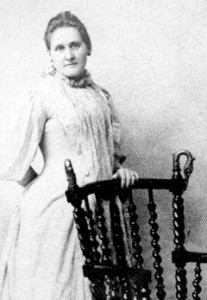1. IS IT TRUE that you can always “start your day over again”? Some days just start off like an old man with a bad leg. Or some begin well but get derailed and never seem to get on track again. On those days there is a nagging thought that yanks at me that I can’t locate among all the other thoughts crowding the real estate in my brain. And the harder I try to figure out what that thought is—because it must be there and it must be bothering me—the more it eludes me. Is it some old piece of mental detritus that just got dislodged and floated up a few levels? Like, why was Dad in such a bad mood that day in 1976? Or: when we were teenagers and my best friend finally cried in front of me on that park bench on a summer night over her parents’ divorce, why was I so paralyzed and unable to speak? Her pain just floored me. I was okay with pain inside myself, but to see it in another person felt excruciating. And if I apologized to her on the phone across the country now and said, “I wanted to do more,” would it make a difference? I’m better about these things now, I like to think. But all that was so long ago.
2. Is kale the new Williamsburg? Why kale all of a sudden? Why not Swiss chard?
3. Do the dead speak to us? William James—philosopher, Harvard professor of psychiatry, and one of our most famous rationalists—was certainly curious about this. He and a group of other respected intellectuals founded the Society of Psychical Research in 1882 and spent years visiting mediums and potential charlatans to ascertain whether they were really communicating with the other side. There were some compelling stories. One Boston housewife was particularly convincing: Leonora Piper, who supposedly communicated with spirits through a gravelly-voiced alter ego named Dr. Phinuit, filled her sessions with the most specific of details—the scar above a child’s eye, the cat that two brothers killed secretly when they were kids. A private investigator could come up with no evidence that Piper was in cahoots with anyone. She was even sent to England to prove herself, away from any potential sources of information. So if a reasonable and really smart guy like William James was apt to believe in such things, couldn’t I believe too? Because it’s nice to think the lines of communication don’t go down completely and forever.
4. What was Richard thinking? I mean when I was in Jamaica that week in March, there only because a friend had won a week’s stay at a villa through her son’s fancy private-school auction and had invited me and the family to come along. In the evenings when we sat in the open, airy great room watching episodes of Downton Abbey, what was Richard the Jamaican night security guard thinking? Richard was part of the staff that came with the rental, along with a cook, a housekeeper, and a driver. He was a youngish, quiet, good-looking guy who was a bit cool at first. He was there to protect us from the infamous rampant Jamaican crime that tourists are warned about (including the machete-wielding cokehead neighbor we only heard about on our last day). The house was perched high on a hill; down below in every direction was spectacular poverty. Richard would sit and watch parts of Downton with us while he was on duty, until he wandered off to talk on his cell phone or check his email. I would glance over occasionally to see how he was reacting, trying to gauge his thoughts. Was this frothy display of British class divisions offensive to him? Did he think I identified with the Granthams more than the servants? Because I didn’t. I liked the valet Bates and the housemaid he married, what’s-her-name, the most. I didn’t really like any of the upstairs people, although I enjoyed the Lady Dowager’s scalding quips immensely. I didn’t like smug Lord Grantham, that’s for sure, although I was rather fond of Cousin Matthew, mostly because of his dreamy blue eyes and because he was gentle and good. But how was all this coming off to Richard? Did it make him uncomfortable? Because I felt very uncomfortable sometimes, with the whole…dynamic. Unlike the Granthams, I was not used to having a domestic staff. I thanked the cook for her delicious dishes after every meal but was always afraid it somehow came off as condescending. And when I said goodbye and thanked Richard in the middle of the night when we finally left to catch our flight, did he realize I had wanted to talk to him more, to know what his life in Jamaica was like, but that I was essentially just pretty shy? And did he realize I never could’ve afforded to be there in the first place had my friend not won the week in that private school auction? I doubt it, and I’m not sure that would’ve been a very interesting fact to him anyway. I was still who I was—another American on vacation in Jamaica who would probably never come back.
5. When I’m lying there with the acupuncture needles in me—acupuncture for the persistent headaches—and my mind finally quiets down and the jangly energy in my body abates, where am I exactly? What is happening? This is a state I wish I fell into more often. Very calm, very okay. Lying there, I ponder thoughts from items one through four (well, maybe not so much about the kale), and they don’t seem to have their usual power. I test it: I put a bad thought in my head (“You’re going to eventually lose all the people you love”) and wait to see what happens. Does the stomach lurch a little? Does the heart sink? No. The needles seem to be protecting me. “Do the dead speak to us? Did Richard know I wasn’t a snob? Did I compliment the cook enough?” Nothing. “Shouldn’t I at least have hugged my best friend on that warm summer night? I just sat there like an idiot.” I move my leg a tad and a current of pain shoots through my body, which seems to say something is definitely going on, it’s not all hocus pocus, this Chinese medicine. It’s just a passing feeling, that little current of pain; it’s not a bothersome thought. And that I can handle. That I can take.





